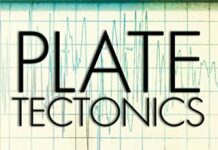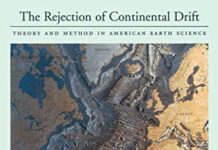
Ebook Info
- Published: 2014
- Number of pages: 472 pages
- Format: PDF
- File Size: 8.30 MB
- Authors: Naomi Oreskes
Description
Investigations of how the global Cold War shaped national scientific and technological practices in fields from biomedicine to rocket science.The Cold War period saw a dramatic expansion of state-funded science and technology research. Government and military patronage shaped Cold War technoscientific practices, imposing methods that were project oriented, team based, and subject to national-security restrictions. These changes affected not just the arms race and the space race but also research in agriculture, biomedicine, computer science, ecology, meteorology, and other fields. This volume examines science and technology in the context of the Cold War, considering whether the new institutions and institutional arrangements that emerged globally constrained technoscientific inquiry or offered greater opportunities for it.The contributors find that whatever the particular science, and whatever the political system in which that science was operating, the knowledge that was produced bore some relation to the goals of the nation-state. These goals varied from nation to nation; weapons research was emphasized in the United States and the Soviet Union, for example, but in France and China scientific independence and self-reliance dominated. The contributors also consider to what extent the changes to science and technology practices in this era were produced by the specific politics, anxieties, and aspirations of the Cold War.ContributorsElena Aronova, Erik M. Conway, Angela N. H. Creager, David Kaiser, John Krige, Naomi Oreskes, George Reisch, Sigrid Schmalzer, Sonja D. Schmid, Matthew Shindell, Asif A. Siddiqi, Zuoyue Wang, Benjamin Wilson
User’s Reviews
Editorial Reviews: About the Author Naomi Oreskes is Professor of the History of Science and Affiliated Professor of Earth and Planetary Sciences at Harvard University.John Krige is Kranzberg Professor in the School of History, Technology, and Sociology at the Georgia Institute of Technology. He is the author of American Hegemony and the Postwar Reconstruction of Science in Europe and the coeditor of Science and Technology in the Global Cold War, both published by the MIT Press.Naomi Oreskes is Professor of the History of Science and Affiliated Professor of Earth and Planetary Sciences at Harvard University.Naomi Oreskes is Professor of the History of Science and Affiliated Professor of Earth and Planetary Sciences at Harvard University.Naomi Oreskes is Professor of the History of Science and Affiliated Professor of Earth and Planetary Sciences at Harvard University.John Krige is Kranzberg Professor in the School of History, Technology, and Sociology at the Georgia Institute of Technology. He is the author of American Hegemony and the Postwar Reconstruction of Science in Europe and the coeditor of Science and Technology in the Global Cold War, both published by the MIT Press.David Kaiser is Germeshausen Professor of the History of Science, Department Head of the Program in Science, Technology, and Society, and Senior Lecturer in the Department of Physics at MIT. He is the author of Drawing Theories Apart: The Dispersion of the Feynman Diagrams in Postwar Physics, and editor of Pedagogy and the Practice of Science: Historical and Contemporary Perspectives (MIT Press).Sonja D. Schmid is Assistant Professor in the Department of Science and Technology in Society at Virginia Tech.John Krige is Kranzberg Professor in the School of History, Technology, and Sociology at the Georgia Institute of Technology. He is the author of American Hegemony and the Postwar Reconstruction of Science in Europe and the coeditor of Science and Technology in the Global Cold War, both published by the MIT Press.
Reviews from Amazon users which were colected at the time this book was published on the website:
⭐A very valuable reference for people who study science and technology, correcting some widely held misperceptions. Anyone writing technically-oriented history of the second half of the twentieth century will find useful linkages here between the technical events and the political maneuverings of the three superpowers that managed to fight the Cold War without actually terminating life on Earth. I was particularly struck by the revelations of competition within the Soviet Union.
Keywords
Free Download Science and Technology in the Global Cold War (Transformations: Studies in the History of Science and Technology) in PDF format
Science and Technology in the Global Cold War (Transformations: Studies in the History of Science and Technology) PDF Free Download
Download Science and Technology in the Global Cold War (Transformations: Studies in the History of Science and Technology) 2014 PDF Free
Science and Technology in the Global Cold War (Transformations: Studies in the History of Science and Technology) 2014 PDF Free Download
Download Science and Technology in the Global Cold War (Transformations: Studies in the History of Science and Technology) PDF
Free Download Ebook Science and Technology in the Global Cold War (Transformations: Studies in the History of Science and Technology)




